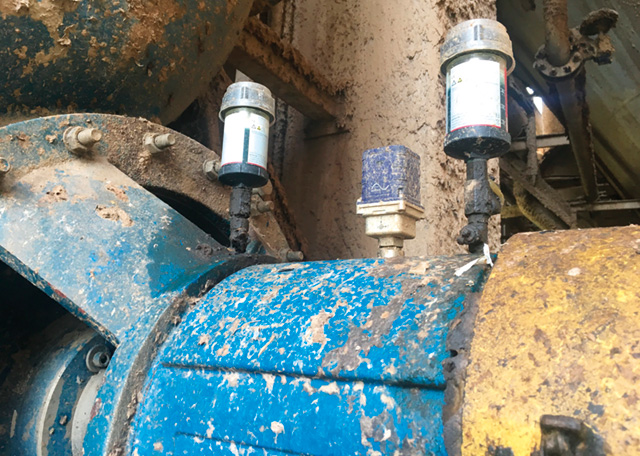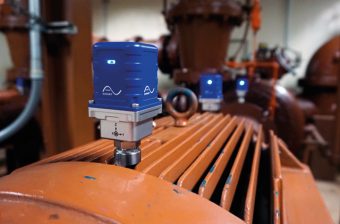
Smart technologies can help manufacturers to detect issues with their plant before they cause a problem, says Augury chief executive Saar Yoskovitz.
Last year was a hard one for manufacturers. Some started the year still recovering from the 2021 supply chain crisis and being hit by workforce shortages. Adding to those pains, 2022 saw growing inflation and the subsequent cost of living crisis while the Government put a price cap on energy costs.
Although the Government’s price cap on industrial energy prices is helpful, it is not enough in the current climate. What the industry needs now are ways to reduce costs while also cutting back on its energy consumption.
Emerging technologies are one of the most important levers manufacturers can use to find extra capacity and reduce pressure on their plants.
The best maintenance is no maintenance
One measurable indicator that manufacturers can use to reduce maintenance costs is the mean time between failure (MTBF). If the indicator is too low, a machine is stopping the production line and needs to be repaired too often. The impact of that varies from sector to sector, but downtime at any plant has a serious impact, both upstream and downstream.
To prevent unnecessary downtime and keep MTBF high, manufacturers need to understand the real time conditions of their critical machinery. These insights will allow for higher productivity, as manufacturers will know when they can push their machines to produce more, as well as be alerted of any upcoming failures that will require stopping production for maintenance.
An argument can be made that planned maintenance schedules can address issues that cause downtime. However, these schedules can create additional downtime as production stops for maintenance checks on machines that might not need it, resulting in even higher manufacturing costs – both in lost uptime and by maintenance costs that use up reliability budgets unnecessarily.

Smart insights
Manufacturers are sitting on a trove of unused data, coming straight from the heart of their operations – from their machines. From vaccines and vitamins to toilet paper and toothpaste, all require reliable machinery to be made so they can enter the supply chain and make their way to consumers.
This data can be captured by smart technologies which help maintain machine health by capturing vibration, temperature and magnetic data from rotating machinery via Internet of Things connectivity.
The technology combines this information with advanced Artificial Intelligence diagnostics and input from human reliability experts, alerting users when a machine is going to fail, what to fix, and how to fix it. And the technology continually builds ‘knowledge’ and improves itself as it monitors the equipment.
By updating your technology infrastructure with AI driven insights and continuous sensing, you can harness the mountains of data your plant produces and identify problems with a high level of accuracy. Even better, you can anticipate problems before they even occur, avoiding unnecessary downtime altogether.
Reducing energy consumption
Changing maintenance and the management of machines are not the only benefits AI can bring to manufacturers. Improving machine performances can impact your energy usage and avoid the wasted product and raw materials created when equipment fails.
I’ve seen companies reduce their total energy consumption by as much as 20%, just by getting ahead of problems and reducing downtime. For example, since 2020 Osem-Nestlé has been using Machine Health technology to avoid unexpected downtime. Recently one alert on their Sabra hummus production line allowed teams to make an early repair, saving thousands of dollars and preventing a shutdown of their entire factory.
In the words of Gofna LIss-Rubin their open innovation manager: “Whenever we prevent a failure, of course we prevent everything that comes from that. We reduce the amount of labour time, machine time, we reduce all the inputs that are used in our operating machines – including energy, water and gas emissions. Any improvement we have in operation and the reduction of the inputs is helping us meet our sustainability goals.”
Manufacturers can use the current economic uncertainty to their advantage by taking the initiative now. They can increase productivity on current production lines, decrease waste and emissions, and alter the way teams collaborate by successfully using machine health technologies. In these unpredictable times, you can rely on your machines.
www.augury.com | info@augury.com | t: 00 972 77 439 5527

Saar Yoskovitz
Chief Executive
Augury

